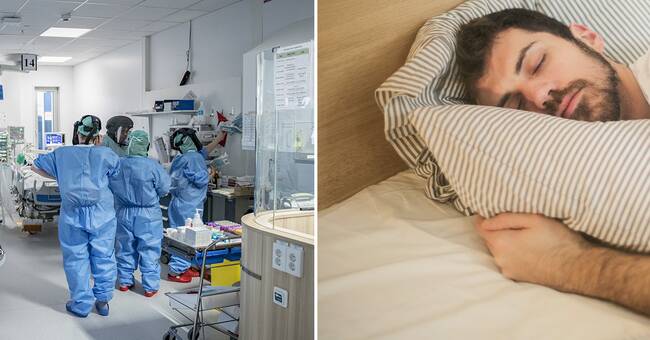Previous studies have shown that melatonin may slow the course of the disease or the risk of developing covid-19.
A computer-based analysis, published in the journal Cell Discovery, indicated that melatonin can make it difficult for SARS-CoV-2, which causes covid-19, to adhere to our cell surfaces.
Similar findings were seen in a study from Brazil, published in the journal Melatonin Research.
In a preliminary version of a study from the University of Colombia, it was found that previous use or addition of melatonin was linked to a greater chance of survival, among patients who required intubation in IVA care for covid-19.
Other researchers came to similar conclusions.
And a study in the journal PLOS Biology showed that patients who received melatonin as medication had a lower risk of being tested positive for the SARS-CoV-2 virus.
Can be sleep in itself
But researchers question whether it is melatonin that has an effect or whether it is sleep itself.
Several clinical trials are underway around the world to see if melatonin can affect the risk of SARS-CoV-2 infection.
- High levels of melatonin can reflect a healthy lifestyle, in the form of better sleep and circadian rhythms.
This in itself can make you cope better with the infection, says Jonathan Cedernaes, sleep researcher at Uppsala University and Northwestern University, Chicago.
Björn Olsen, professor of infectious diseases at Uppsala University, is on the same track.
- Whether it is the melatonin itself that determines whether you become infected or not is too early to say.
The immune system is dependent on other factors such as cortisol secretion, for example, he says.
Exclude other factors
If you have both melatonin values and values of what sleep looks like, you can try to see which of them actually helps.
- You can also continue to study individuals who take melatonin compared to those who do not take it.
At the same time, it must be possible to rule out that there are no other factors that contribute, such as those who take melatonin may be people who take extra care of their health and thus live healthier lives, says Jonathan Cedernaes.
He also speculates on whether melatonin can affect the elderly's immune system.
- Melatonin levels deteriorate both due to shift work and increasing age.
With age, the immune system also deteriorates.
It would be very interesting to study whether certain processes that get worse with age can be improved with the help of melatonin.
However, there are many other hormonal factors that also deteriorate with age, so it is far from certain that melatonin itself is a particularly important factor, he says.
Studies by healthcare professionals can provide answers
By studying healthcare professionals, researchers can get more answers about falling ill with covid-19 linked to sleep.
Those who perform shift work, such as healthcare staff, often have disturbed circadian rhythms and also impaired secretion of melatonin.
A limited study published in ATS Journal's January 14 this year has examined sleep patterns before and during the pandemic for women working in healthcare.
The study is based on data from the larger international study, ICOSS.
The study in ATD Journals shows that there were no differences in sleep quality, such as excessive daytime fatigue, for healthcare professionals compared to other groups before the pandemic.
During the pandemic, the care staff are more dissatisfied with their sleep and more daytime tired, while there was no difference compared to before the pandemic for the other groups.
Daytime fatigue disappeared after adjusting for those who had covid-19.
- A possible interpretation that the hospital worker may have more sleep problems after covid-19.
More studies are needed to understand whether disturbed sleep, such as a high incidence of shift work among healthcare workers, may increase the risk of covid-19.
Then it can also be interesting to try to find out if disturbed secretion of melatonin is a contributing factor.
At the same time, many changes occur during sleep, so sleep is disturbed, many hormone levels and immunological functions change, says Jonathan Cedernaes.

